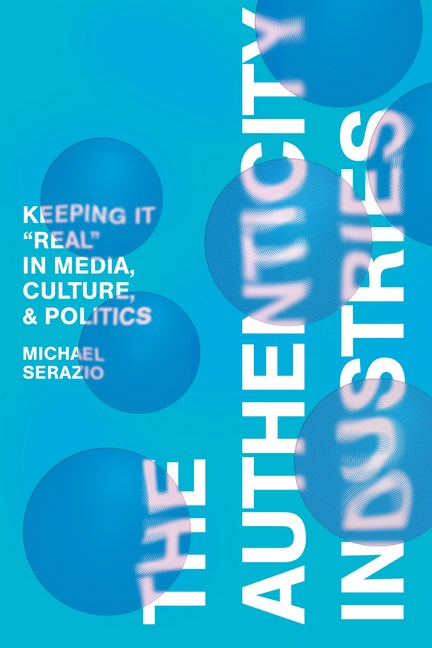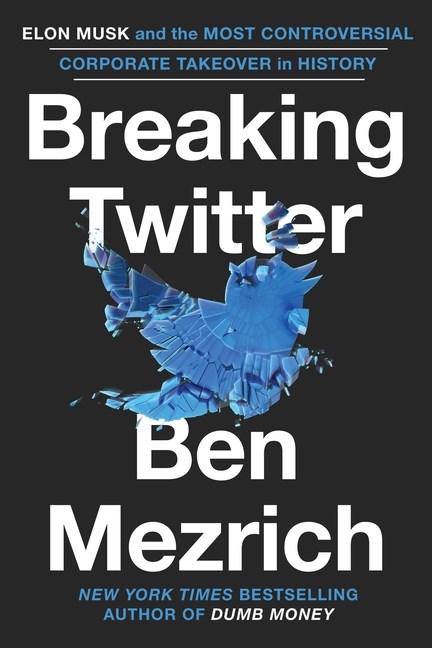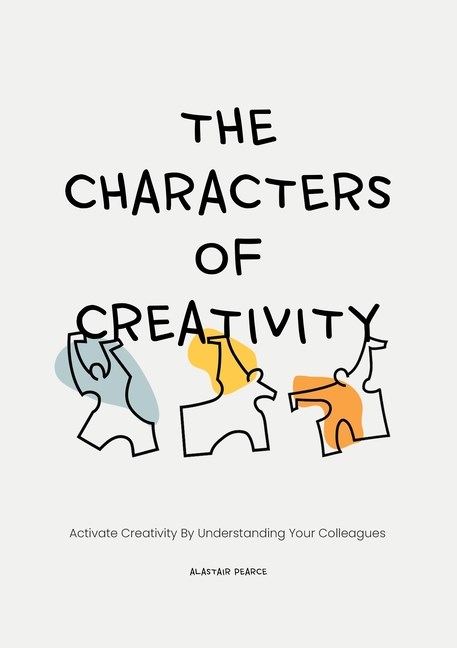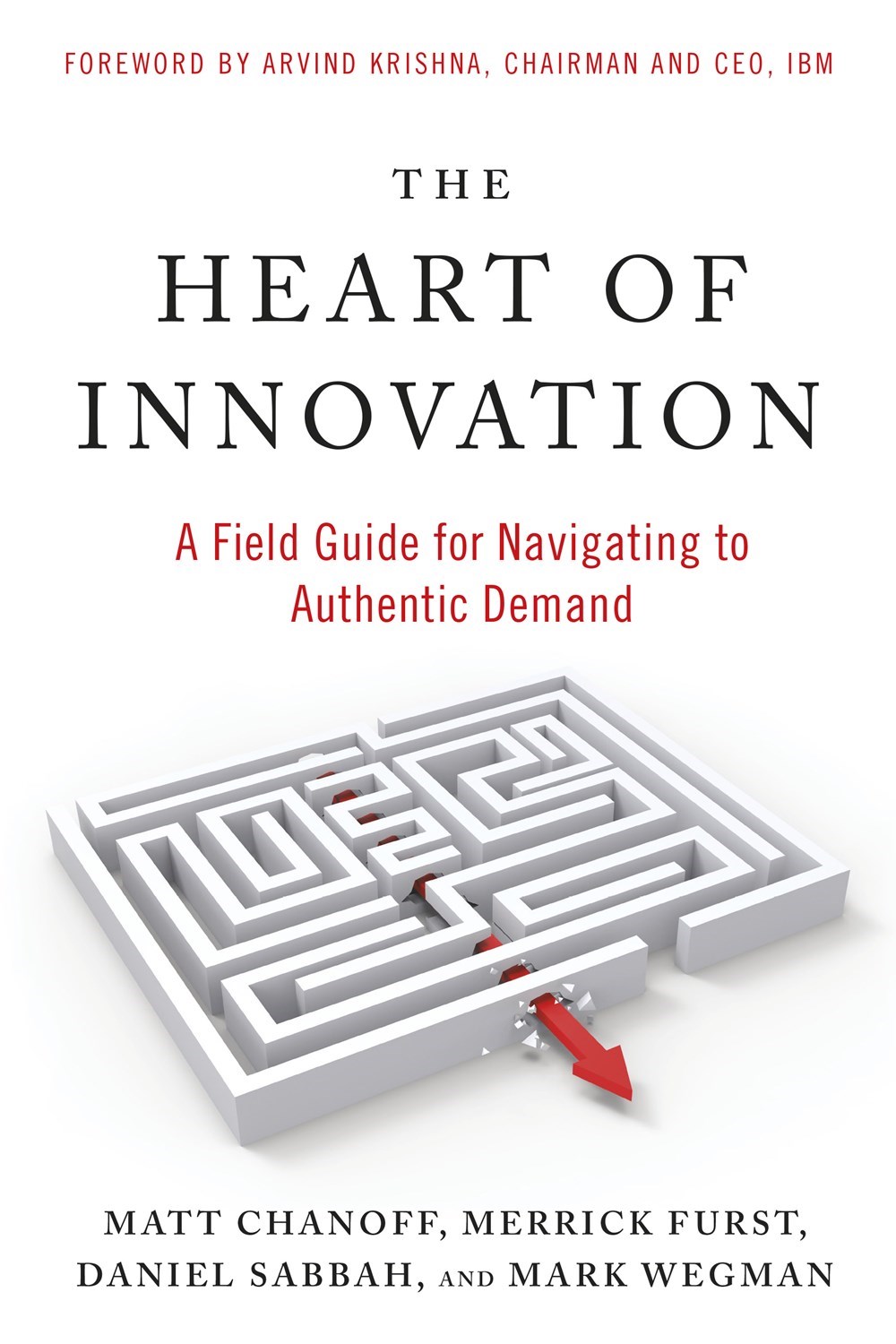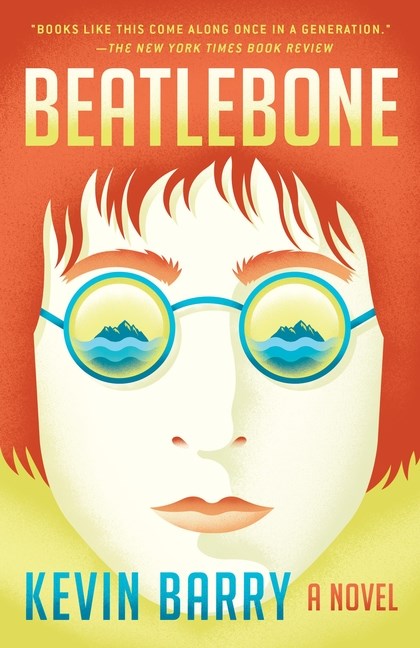November 7, 2023
November 07, 2023
Finding the right book at the right time can transform your life or your organization. We help you discover your next great read by showcasing four recently released titles each week.
The books are chosen by Porchlight's Managing Director, Sally Haldorson, and the marketing team: Dylan Schleicher, Gabbi Cisneros, and Jasmine Gonzalez. (Book descriptions are provided by the publisher unless otherwise noted.)
This week, our choices are:
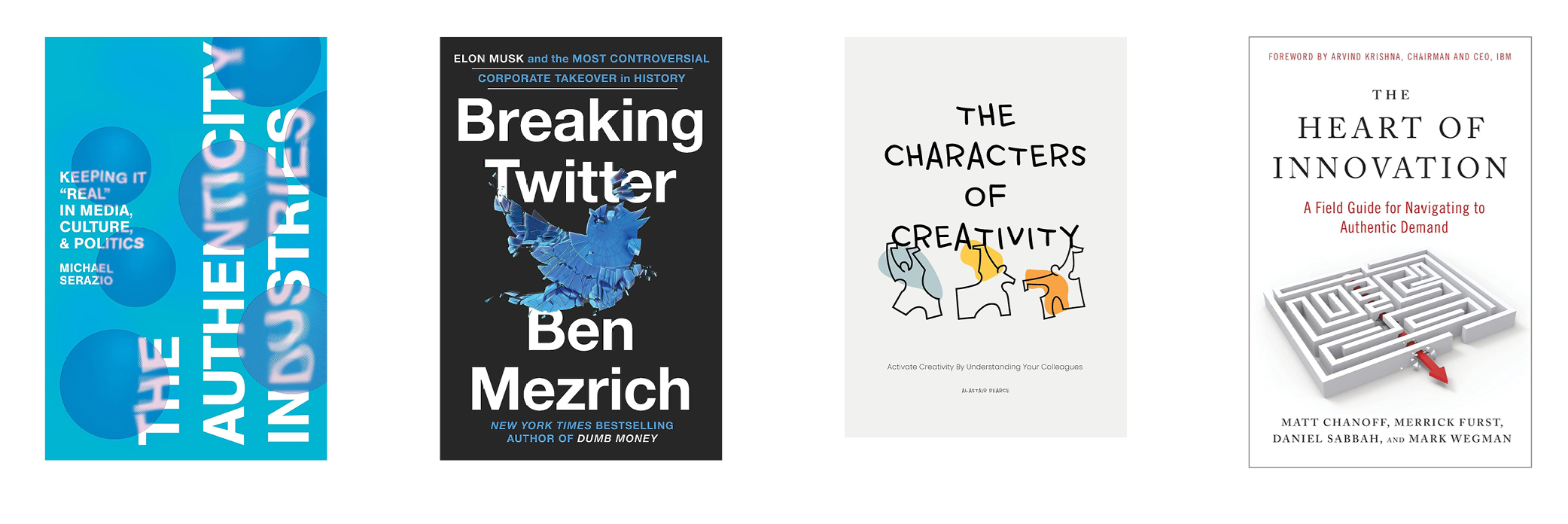
Jasmine’s pick: The Authenticity Industries: Keeping it "Real" in Media, Culture, and Politics by Michael Serazio, Stanford University Press
In recent decades, authenticity has become an American obsession. It animates thirty years' worth of reality TV programming and fuels the explosive virality of one hot social media app after another. It characterizes Donald Trump's willful disregard for political correctness (and proofreading) and inspires multinational corporations to stake activist claims in ways that few "woke" brands ever dared before. It buttresses a multibillion-dollar influencer industry of everyday folks shilling their friends with #spon-con and burnishes the street cred of rock stars and rappers alike. But, ironically, authenticity's not actually real: it's as fabricated as it is ubiquitous.
In The Authenticity Industries, journalist and scholar Michael Serazio combines eye-opening reporting and lively prose to take readers behind the scenes with those who make "reality"—and the ways it tries to influence us. Drawing upon dozens of rare interviews with campaign consultants, advertising executives, tech company leadership, and entertainment industry gatekeepers, the book slyly investigates the professionals and practices that make people, products, and platforms seem "authentic" in today's media, culture, and politics. The result is a spotlight on the power of authenticity in today's media-saturated world and the strategies to satisfy this widespread yearning. In theory, authenticity might represent the central moral framework of our time: allaying anxieties about self and society, culture and commerce, and technology and humanity. It infects and informs our ideals of celebrity, aesthetics, privacy, nostalgia, and populism. And Serazio reveals how these pretenses are crafted, backstage, for audiences, consumers, and voters.
Dylan’s pick: Breaking Twitter: Elon Musk and the Most Controversial Corporate Takeover in History by Ben Mezrich, Grand Central Publishing
Breaking Twitter takes readers inside the darkly comic battle between one of the most intriguing, polarizing, influential men of our time—Elon Musk—and the company that represents our culture’s dearest hope for a shared global conversation. From employee accounts within Twitter headquarters to the mission-driven team Musk surrounded himself with, this is the full story from all sides. Can Musk miraculously succeed or will he spectacularly fail? What will that mean to the global town hall that is Twitter? What, really, is Elon’s end goal? The whole world is watching. Breaking Twitter will provide ringside seats.
Elon Musk didn't break Twitter. Twitter broke Elon Musk.
Gabbi’s pick: The Characters of Creativity: Activate Creativity by Understanding Your Colleagues by Alastair Pearce, BIS Publishers
Everybody can be creative. But how do you get people to release their innate creativity? The Characters of Creativity has all the answers. This book helps organizations and individuals to understand and support the creative process in the workplace. It is a practical guide designed to help managers and leaders understand how to effectively support and manage creative colleagues in a commercial organization.
The book presents caricatures or archetypes of different types of creatives (Picky, Molotov, Solo, Artiste, Fibber, and Playful, to name a few), which help readers to identify and understand the different approaches and needs of creative individuals in the workplace.
For instance, Solo doesn't like teams.
Artiste hates having work evaluated.
Molotov is convinced it's always management's fault.
Picky loves having just one final pick at a non-existent problem.
Fibber assures you the work will be finished by Friday.
Playful turns everything into a game.
Wobbly's insecurities tempt you to become an amateur psychotherapist.
Whether you're a manager of creatives, a colleague of creatives, or simply creative yourself, chances are you recognize some of your colleagues or team members in this. If so, The Characters of Creativity is your go-to guide. The book offers specific strategies and techniques for releasing creativity.
- A practical guide to the complex world of creativity.
- Turn strategy into creativity and find out what management tools work for creatives.
- Learn how to create a professional environment that stimulates creativity and innovation.
- Grow the fertile ecology in which creativity flourishes.
Sally’s pick: The Heart of Innovation: A Field Guide for Navigating to Authentic Demand by Matt Chanoff, Merrick Furst, Daniel Sabbah, and Mark Wegman, Berrett-Koehler Publishers
Books on innovation mostly focus on how to nurture innovative cultures and brainstorm ideas. The Heart of Innovation is the first popular book to concretely delve into what innovations really are and how to create them. Many attempts at innovation fail because customers turn out to be indifferent. The key to success is to uncover unmet authentic demand; what customers cannot be indifferent to. Through fresh case studies, ranging from how SoulCycle revolutionized the fitness industry, to how IBM built an $8 billion business on the Web, to a single mother ending abuse in a slum in Africa, The Heart of Innovation explores how authentic demand is often hidden or taken for granted.
The first half of the book explores cases where people accidentally found their way to meeting an unmet authentic demand—or failed to. The second half of the book provides a field guide to methodically identifying and building products, services, and businesses around authentic demand.
At Georgia Tech, IBM, and elsewhere, the authors have worked with scores of startups and large companies, developing a unique methodology that unpacks the “black box” of authentic demand and shows innovators how to search for it, recognize it, and create situations for their customers that catalyze it. They explore the differences, and different challenges, to the three types of innovation—incremental improvement, company transformation, and radical “formative” innovation.
Authors Chanoff, Furst, Sabbah, and Wegman take innovators and people who work with them on a new journey through innovation. Their fresh case studies, from IBM’s entry to the Web, to a single mother in a slum in Kenya, make The Heart of Innovation as obsessively readable as it is informative.
If customers are already pulling your innovation from your hands, you don’t need this book. Otherwise, reach for The Heart of Innovation.
WHAT WE'VE BEEN READING AT HOME
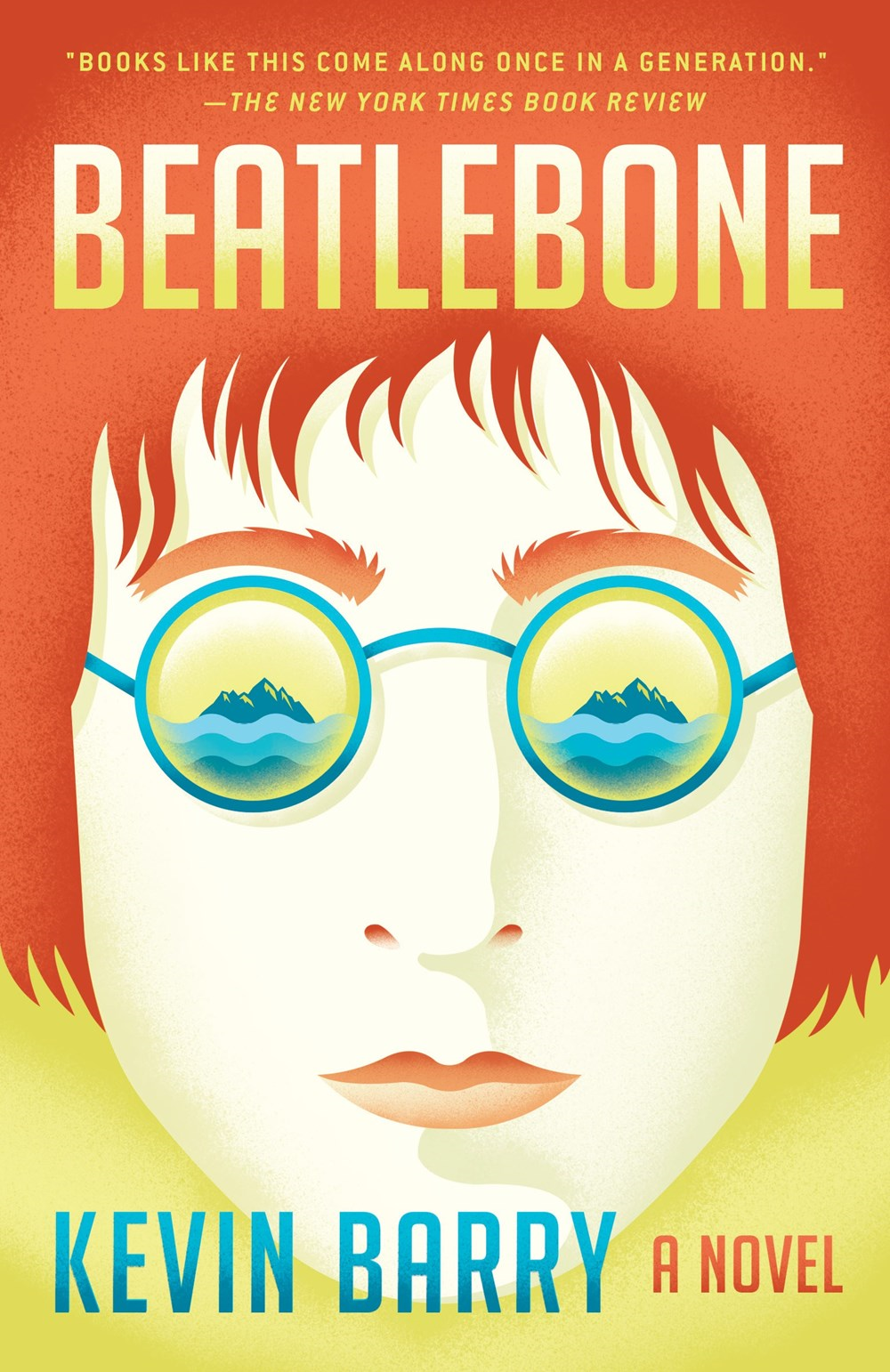 "Beatlebone by Kevin Barry. This is a fictionalized account of John Lennon wandering around the west coast of Ireland to find an island he bought years prior. By Barry's telling, the story takes place at a moment in Lennon's life during which he's steeped in regret over past mistakes and uncertainty about his current and future creative efforts. The whole thing proves to be a lot of looking and little finding, but along the way lots of ridiculous things happen and there is created a very believable portrait of an artist in crisis. I was skeptical at the outset, but pleasantly surprised by the end."
"Beatlebone by Kevin Barry. This is a fictionalized account of John Lennon wandering around the west coast of Ireland to find an island he bought years prior. By Barry's telling, the story takes place at a moment in Lennon's life during which he's steeped in regret over past mistakes and uncertainty about his current and future creative efforts. The whole thing proves to be a lot of looking and little finding, but along the way lots of ridiculous things happen and there is created a very believable portrait of an artist in crisis. I was skeptical at the outset, but pleasantly surprised by the end."
—Michael Jantz, Logistics Director


